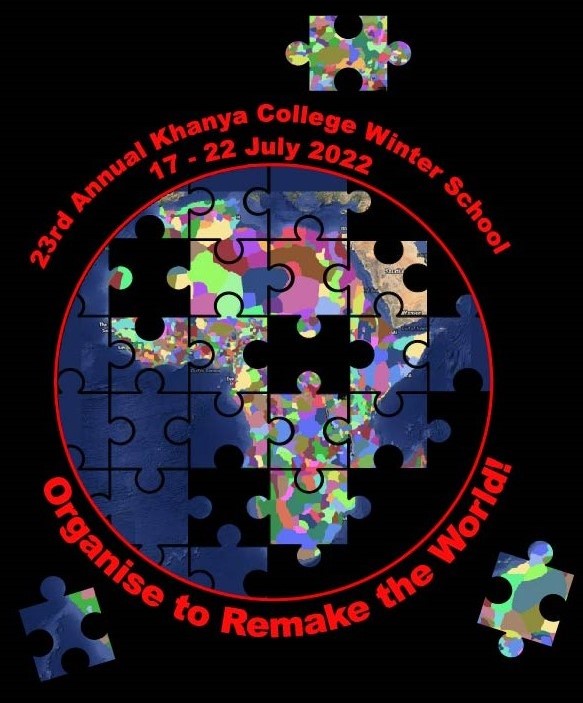On 20 July 2022, the school zoomed into the building of strong working-class organisations, their strengthening and also the building of a strong activist cadre for the social justice movement. A cadre is a group of individuals who have been specially trained for or are bound by a purpose. This, or an individual who is a member of this group, is a cadre.
For comrade Searatoa, who was facilitating the session, a cadre is simply a group of people doing an organisation’s work and not just the leaders. At a different moment, comrade Maria argued that leadership in social movements has to happen at all levels, which means Cadres are not just the leaders of the movements, but everyone in the organisation.
The participants at the school were asked to do free writing on what they think their organisations need to become stronger. “Think of organisations as trees”, and were later given pieces of paper on which to write what strong organisations of the working class need; and what for them is a model activist in the cadre. Afterwards, the comrades were asked to stick their pieces of paper on a sheet of paper on which a tree had been drawn, the stuck papers representing tree leaves.
During the feedback session, participants who had an opportunity to speak told the school which ‘leaves’ were the highlight for them during the walk-about to see what the final ‘tree’ looked like. What stood out for most participants was loyalty and transparency as requirements for both the organisation and the cadre. Another participant said that the requirement for organisations to have support systems for their members and or workers was a big deal.
The next two big items for the participants were women’s leadership and the idea of an organisation without gender roles. Poppy Makhubo of Habitat61 Creative Hub said that “women tend to be the majority in movements but they are never in positions of power.” She further added that the theory of ‘no gender roles’ in organisations, does not happen practically.
“Comrades need to understand that activism is a life-long commitment, it is not when it suits your pockets or your relevance in society but a continuous struggle”, said Viwe, another member of Habitat61.
Lively discussions usually spark debates and this one was not an exception. Comrade Thandeka criticized movements and organisations saying leaders like to put emphasis on punctuality, making such a demand of the general members but do not keep time themselves. She further said there was no consideration for the problems grassroots activists have to deal with in their homes and to balance with work but are being pressured over issues relating to time. Almost in a show of support, another participant said that organisations and movements should be required to be responsible for mental healthcare and the well-being of members.
Others emphasized the need for stringent recruitment processes for organisations to bring in comrades that will benefit the organisation and not bring it down. Reading was one ritual model activists are required to have.
Comrade Maria closed the session with a big swipe at attitudes that lead to the collapse of movements, exampling lavish spending of organisational funds, gossip, corruption, and unethical sexual relations between members of the organisation. One of the big takes from the discussion is that without strong Cadre formations, we cannot have strong organisations and social movements. Activists need to commit themselves to the struggle to build and strengthen their organisations.
This article was submitted as part of the Imbila Yesu publication produced daily for the duration of the Winter School in 2022 (17-22 July 2022). It appeared in Edition 1, released on 21 July 2022.
You may republish this article, so long as you credit the author and Karibu! Online (www.Karibu.org.za), and do not change the text. Please include a link back to the original article.


 Download PDF
Download PDF